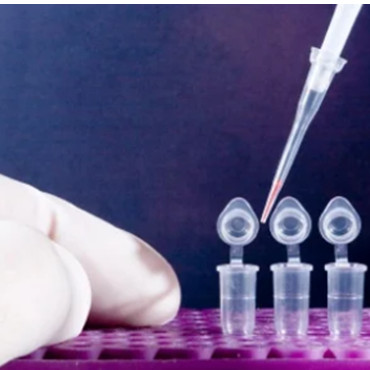What is PCR technology?
What is PCR?
The polymerase chain reaction (PCR) is a molecular biology technique used to amplify specific DNA fragments. It can be regarded as a special DNA replication in vitro. The biggest feature of PCR is that it can greatly increase the trace amount of DNA. PCR is a very sensitive technique that rapidly amplifies specific stretches of DNA. PCR makes billions of copies of a specific piece of DNA, or gene, that allow visual techniques to detect and identify gene sequences based on size and charge.
Principles of PCR
PCR is the use of DNA denaturation at a high temperature of 95°C in vitro to become single-stranded. When the temperature is low (usually about 60°C), the primer and the single-strand are combined according to the principle of base complementary pairing, and then the temperature is adjusted to the optimal DNA polymerase. At the reaction temperature (around 72°C), DNA polymerase synthesizes complementary strands along the direction of phosphate to five-carbon sugar (5'-3'). The PCR instrument based on polymerase is actually a temperature control device, which can be well controlled between the denaturation temperature, the renaturation temperature and the extension temperature.

Application of PCR Technology
The semi-conservative replication of DNA is an important way of biological evolution and generation. Double-stranded DNA can be denatured and unrolled into single-stranded DNA under the action of various enzymes. With the participation of DNA polymerase, it is replicated into the same two molecular copies according to the principle of complementary base pairing. In experiments, it was found that DNA can also be denatured and melted at high temperature, and can be renatured into double strands when the temperature is lowered. Therefore, by controlling the denaturation and renaturation of DNA by temperature changes, adding designed primers, DNA polymerase and dNTP can complete the in vitro replication of specific genes.
However, DNA polymerase will be inactivated at high temperature. Therefore, new DNA polymerase must be added in each cycle, which is not only cumbersome to operate, but also expensive, which restricts the application and development of PCR technology.
The discovery of thermostable DNA polymerase-Taq is a milestone for the application of PCR. The enzyme can withstand high temperatures above 90 °C without inactivation. It does not need to add enzymes for each cycle, making PCR technology very simple and convenient. At the same time, the cost is greatly reduced, and PCR technology can be widely used and gradually applied in clinical practice.
Professional manufacturer of Nucleic Acid (DNA & RNA) Extraction and Analysis products supplier
GENETURE is a group company,we own two factories: Ascend and Dianrun,to provide one stop solution of Nucleic Acid Extraction and Analysis,including solution for COVID-19. Geneture provides high quality and professional Nucleic Acid Extraction Reagents, Lab consumables, Real-time PCR consumables and test machines.
GENETURE main products including: Nucleic acid extraction or purification kit,Automatic nucleic acid extractor, PCR system, PCR kit, Magnetic beads, and lab consumables of 96 well deep plate,Magnetic rod comb,PCR tube,PCR plate,Pipette tips,centrifuge tubes.
Geneture's PCR amplification systems feature the latest technological advances, providing greater accuracy and reproducibility in nucleic acid amplification for genomic experiments. Product lines include real-time PCR systems, PCR reagents, and plastic products (PCR plates and PCR tubes). If you have any questions about PCR, feel free to contact us.
Email: info@geneture.com
Mobile: +86 150 1002 8687
